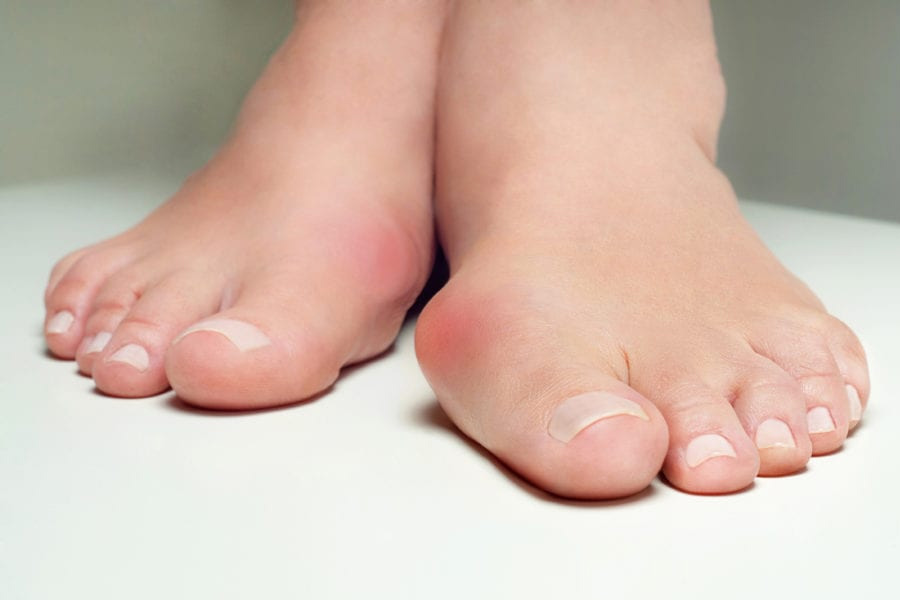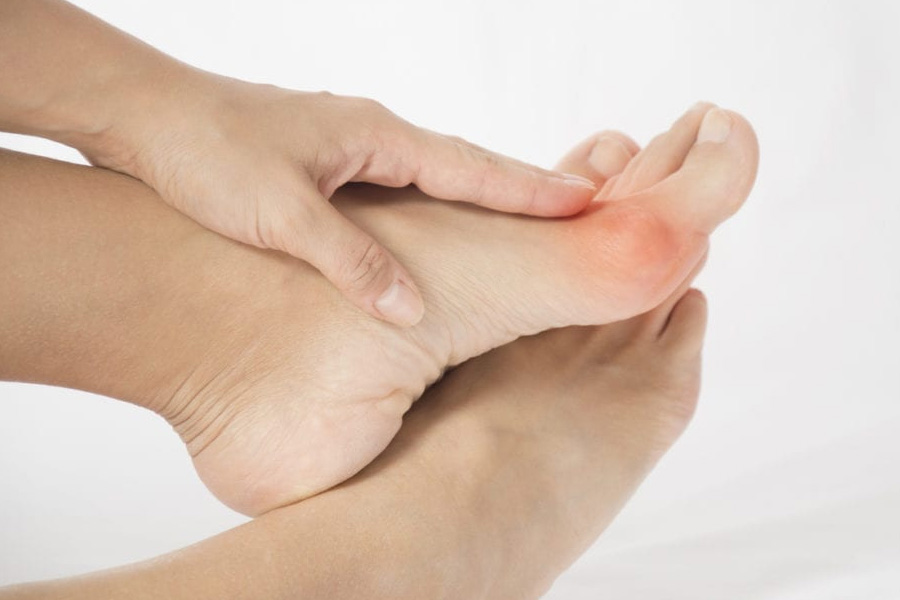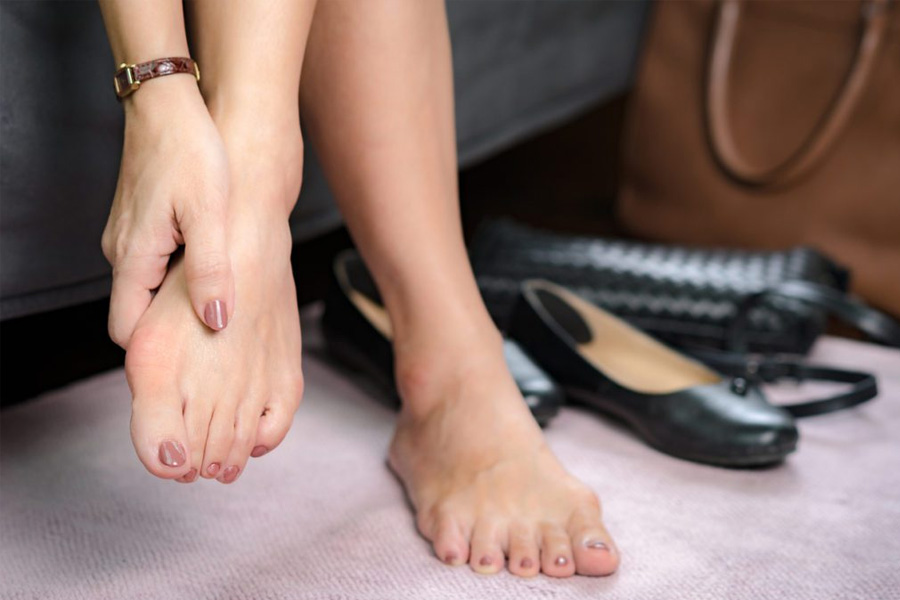A bunion is a hard bump that appears at the base of your big toe, forcing that toe to slightly overlap with the adjacent toe. The scientific term for bunions is hallux valgus, and they usually develop due to structural problems of the first metatarsophalangeal (MTP) joint of the foot.
If you have bunions, you should know that they are not something to take lightly. Unlike corns and calluses, bunions are a symptom of a potentially progressive bone disorder.
Bunions affect how your feet line up, which may lead to pain and balance issues. Most shoes do not usually accommodate the presence of bunions, so the shoe presses against it and can make it worse.
Why Bunions Develop
There are several reasons why a bunion can develop, including:
- High arches
- Flat feet
- Having a too-round metatarsal head of the big toe
- Being on your feet a lot
- Wearing shoes that are too tight
- Being pregnant
- Genetics
- Arthritis
It can be easy to develop a bunion if you often wear shoes that are narrow and ill-fitting. Bunions are common in women because of the frequent wearing of narrow and pointy shoes, such as high heels.
Ill-fitting shoes cause the big toe to push against the next toe, so the metatarsophalangeal joint is angled outward from the foot. The pressure on the bone causes inflammation and swelling, causing a permanent bump to form.
Occupations or activities that require you to be on your feet and on the go at all times also make you susceptible to developing bunions. Pregnant women are prone to developing bunions due to a loosening of ligaments during pregnancy that can flatten the feet.
However, there are people who wear the wrong shoes and stay on their feet most of the time and yet never develop bunions. The reason for this is that bunions are usually due to an underlying susceptibility.
Therefore, wearing the wrong shoes or being on your feet at all times is not the only root cause. Bunions are genetic – the inherited characteristics and shape of your foot can make you susceptible or not.
Treatment for Bunions
It’s crucial to have a podiatrist assess your bunion and formulate a treatment plan for you to avoid further complications and reduce any pain it causes. Diagnosis will usually require an X-ray to measure the angle formed by the protrusion. If the outward angle of the joint is beyond 15 degrees, it is not normal.
Your doctor will likely recommend ice therapy, wearing looser and/or roomier shoes, shoe inserts and orthotics, and over-the-counter pain relievers to reduce the pain. Surgery will only be recommended if the bunion hinders you from living a normal and active life.
How Can a Bunion Affect My Feet?
Bunions can affect your balance and may lead to developing ingrown nails and calluses. If this happens, have it checked by a podiatrist. The constant shifting of weight away from the painful bunion may also lead to further foot issues and pain.
Bunions can affect your quality of life. If unaddressed, you will eventually have trouble walking and engaging in other physical activities.
Foot Doctors in Cincinnati
Instead of tolerating the pain and restrictions that come with bunions, having them professionally treated can help you get back to living a normal life. Our podiatrists at Cincinnati Foot & Ankle Care will explain all of your options for the treatment of your bunions.
To discuss bunion treatment or foot issues with any of our podiatrists, contact the location nearest to you to arrange a consultation or request an appointment online. We look forward to seeing you.





